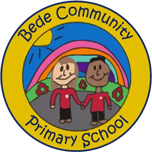ARMS Unit
Our ARMS (Additionally Resourced Mainstream School) provision is a big part of Bede, specialising in giving children who are neurodivergent the very best school experiences while with us. Our children come from all over the borough to be educated here while they are assessed to find the appropriate places to meet their individual needs. Sometimes they will stay with us, but they may also move on either to specialist provision or will transition back into mainstream education.
To contact our ARMS Unit please send an email to the following address:
bedearmsenquiries@gateshead.gov.uk
UNDER CONSTRUCTION
Our ARMS unit is currently undergoing changes and restructuring. If you require any information please contact the school office or use the email address above.
